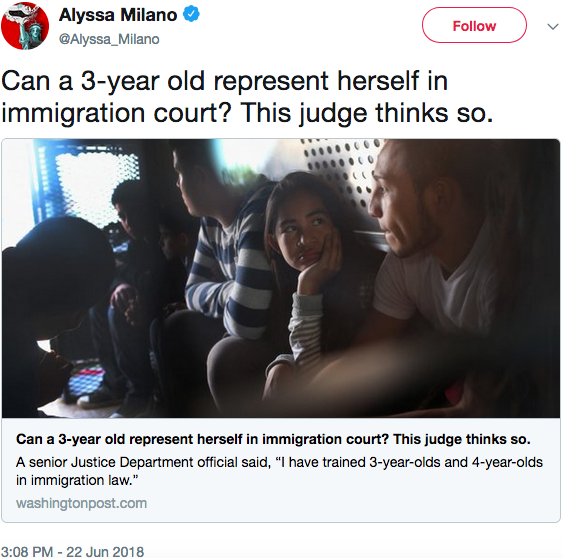The following article—dating from March 5, 2016—in The Washington Post titled, “Can a 3-year old represent herself in immigration court? This judge thinks so.” is now making the rounds across the Internet in light of current U.S. immigration policy that is separating parents from children. Screenshot of actress Alyssa Milano’s tweet—which is where I first learned about this—at the bottom of this post for reference.
The article is fairly stunning when it states the following quotes attributed to Jack H. Weil, a longtime immigration judge:
“I’ve taught immigration law literally to 3-year-olds and 4-year-olds,” Weil said. “It takes a lot of time. It takes a lot of patience. They get it. It’s not the most efficient, but it can be done.”
He repeated his claim twice in the deposition, also saying, “I’ve told you I have trained 3-year-olds and 4-year-olds in immigration law,” according to a transcript. “You can do a fair hearing. It’s going to take you a lot of time.”
These quotes apparently come from “…sworn testimony in a deposition in federal court in Seattle.”
But as odd as these claims are, I can’t seem to find a solid context for the deposition for the quotes provided. And the article itself almost glosses over the details and specifics past the shocking quotes.
That said, the judge in question is quoted in the article as saying the following; note that while he states the quotes were “taken out of context” no actual context is give:
Weil, in a brief email, said his statements don’t “present an accurate assessment of my views on this topic” and were being “taken out of context.” He said he would need Justice Department permission to speak further and did not respond to subsequent emails.
So that said, are there any primary sources—or solid secondary sources—that can provide a clearer context for these quotes and claims?

